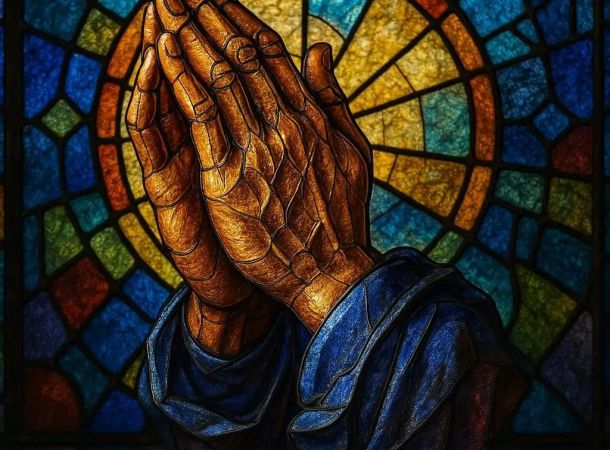Testing God
The ten spies and their ominous report of the Promised Land have left a lasting impression on Judaism. God instructs Moses to send a leader from each of the twelve tribes to scout the land of Canaan. While some argue that it was the people of Israel who requested the spies, and the Holy One permitted it, Moses complies, with only two returning, their trust in God’s power unshaken. The lesson we glean from Numbers 13:1-16:1, the Torah portion of Shelach, meaning ‘sent,’ is that fear can inhibit faith.
Moses selects one leader from each tribe to enter the land and report back to the community. Are the people who live there strong or weak, few or many? Are the cities like camps or fortresses, and is the land good or bad, rich or poor, forested or not? Do not forget to bring back the fruit of the land. The fruit was intended as an offering because the scripture states it was the season of First Fruits (Nm 13.20). In Exodus 13:11-12, God instructed the Israelites to offer their first fruits upon entering the land. Instead of using the fruit as an offering of victory in the land of Canaan, the ten spies used it to plant fear in the congregation of Israel.
There are two main parts of our brain: the first is the amygdala, where our survival instincts are active. In this part of our brain, our animalistic, human nature is constantly searching for safety by scanning our experiences and using our past to predict the future. Another and larger portion of our brain is the prefrontal cortex, where wisdom, logic, and understanding are accessed. To access the mind of the Spirit or the prefrontal cortex, you have to regulate or rule over your fear center in the amygdala. It was a matter of which internal voice the spies would listen to: fear or wisdom-producing faith.
The Holy One had already told the congregation, through Moses, who dwelt in the land of Canaan, so the inhabitants should not have been a surprise (Ex 3.17). He also told them that He would go before them and cut off the inhabitants of the land (Ex 23.23). I do not hold to the interpretation that the Nephilim are a mixture of angels and humans; I believe they are the offspring of Hebrew rulers who intermarried with the surrounding nations. We will not delve into this topic today, but you can explore more in my study, Eneme: Understanding Satan from a Hebraic Perspective, in the chapter titled ‘Sons of God.’ It does open a can of worms, in that it reveals a power that is accessed when spiritual leaders join forces with the mighty men from the nations. Most likely, this is the reason the Holy One consistently advises against it (Ex 34:11-16; Jgs 5:3-6; Gn 6:2).
What happens when we are afraid is that we tempt God. I love how John Walton describes the difference between temptation and testing, which often stem from the same word in the Bible. He states that temptation is placing an obstacle in one’s path and expecting them to fail. Testing is putting an obstacle in one’s path and expecting them to overcome it. God does not tempt us, but He does test us to inspire us to grow.
Deuteronomy 8:2: And you shall remember that the Lord your God led you all the way these forty years in the wilderness, to humble you and test you, to know what was in your heart, whether you would keep His commandments or not.
Exodus 3:17: And I have said I will bring you up out of the affliction of Egypt to the land of the Canaanites and the Hittites and the Amorites and the Perizzites and the Hivites and the Jebusites, to a land flowing with milk and honey.
Numbers 14:22: Because all these men who have seen My glory and the signs which I did in Egypt and in the wilderness, and have put Me to the test now these ten times, and have not heeded My voice.
When it says the Israelites tested the Holy One ten times, we could interpret this as they tempted God by expecting Him to fail to deliver them whenever they faced a challenge. I found seven times where I believe the Israelites tested the Holy One. I will keep studying to see if I can find the other three times. (Ex 5.21;14.11-12; 16.3; 17.2-3; Nm 11.1; 14.3; 16.41) In each of these cases, they did not attribute good intentions to the Holy One; in fact, they did the opposite, attributing evil intent to God’s actions. In Numbers 13:31, the Hebrew word mimenu, translated as “they are stronger than we,” could also be interpreted as “they are stronger than He,” referring to the Holy One. Can you think of a time when an enemy, a problem, a situation seemed bigger than God? It is easy to believe addiction is impossible to overcome, even God can’t deliver me. This bully, or this person, is so powerful, influential, or scary that even the Holy One can’t help deliver me from their hand. The financial problem, the physical ailment, the emotional trauma, whatever it is, can seem like it is bigger than the Creator, but one of His names is El Shaddai, which means “Almighty” or “All Sufficient One.” Trust in that.
The Bible instructs us on how to calm the fear center of the mind, allowing us to access faith and wisdom. Remember. The Holy One implores us to remember multiple times in the Scriptures because it is how we soothe our fear response. It is when we misremember or forget all the ways that God has delivered, saved, healed, revealed, and fulfilled His promises that we fall prey to fear and anxiety.
Caleb represented the tribe of Judah as one of the twelve spies, and instead of following the other leaders, he decided to go to Hebron. The graves of the matriarchs and patriarchs were located in Hebron. Caleb visited the place where Abraham rested and remembered God’s promise to him to bring his descendants into the land. Caleb came back to the congregation of Israel and said (in my own words), “We can conquer it, let’s go! God is with us, we got this!” (Nm 13.30 & 14.7-9) Joshua, the son of Nun, was the second spy who inspired Israel to conquer the land. The two of them remembered all that the Holy One had done over the last forty years; they soothed any fear or anxiety that seeing the powerful inhabitants and fortified cities triggered, and they placed their trust in God to do what He had done multiple times before —make His word come to pass.
Deuteronomy 7:17-18: If you should say in your heart, “These nations are greater than I; how can I dispossess them?”— you shall not be afraid of them, but you shall remember well what the Lord your God did to Pharaoh and to all Egypt.
Psalm 20:7: Some trust in chariots, and some in horses; But we will remember the name of the Lord our God.
There are daunting, significant, and loud challenges that we will all face. Faith is not blind; it uses wisdom and understanding to access all the past times when we survived hard things by the grace of God. Audit your memories, ensuring you recall things accurately, and then remind yourself that you are in the capable hands of the Holy One, who can keep you, enable you, and strengthen you when you listen to and obey His voice.
Ephesians 3:20: Now to Him who is able to do far beyond all that we ask or imagine, by means of His power that works in us.




Leave a Reply